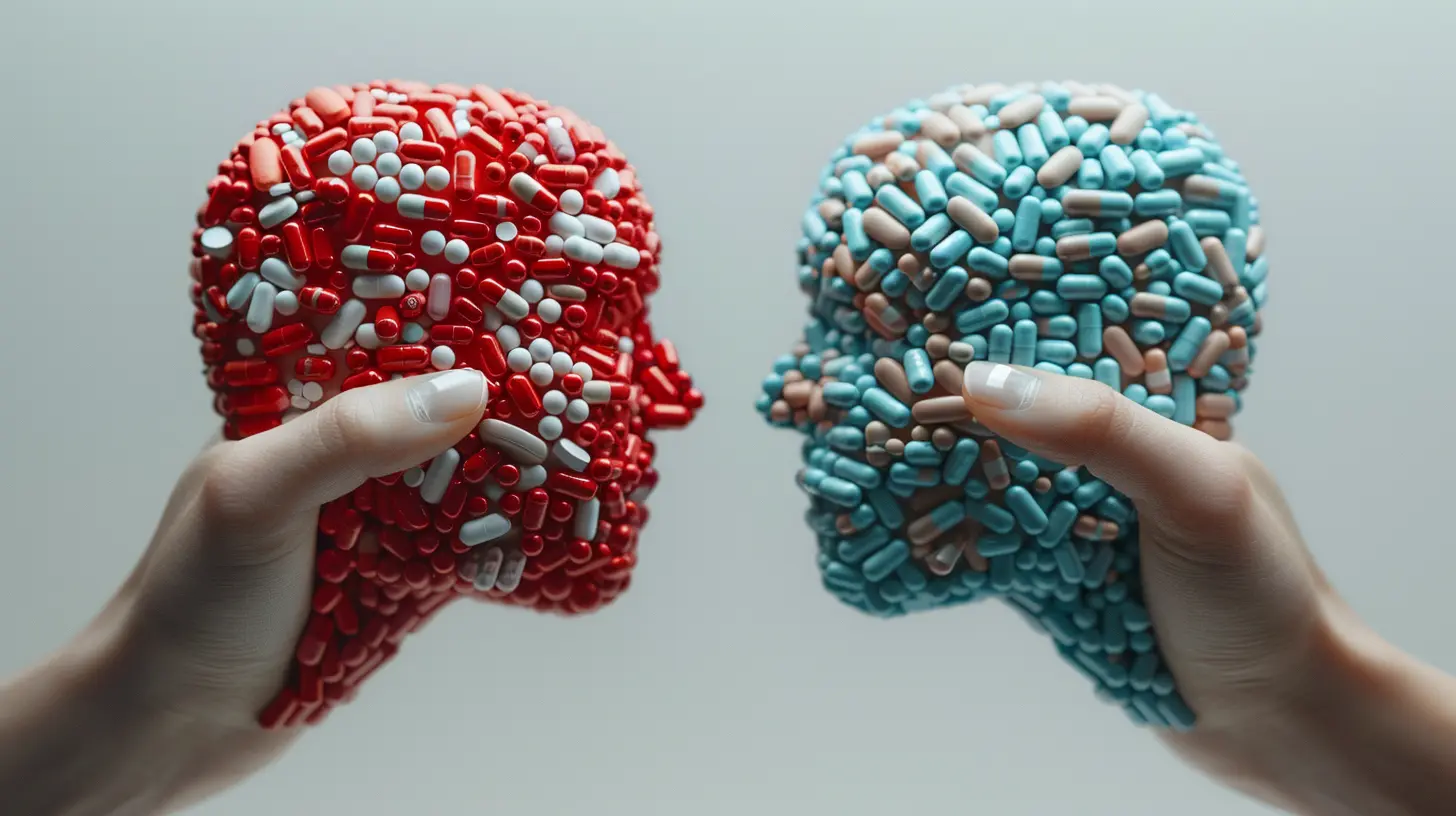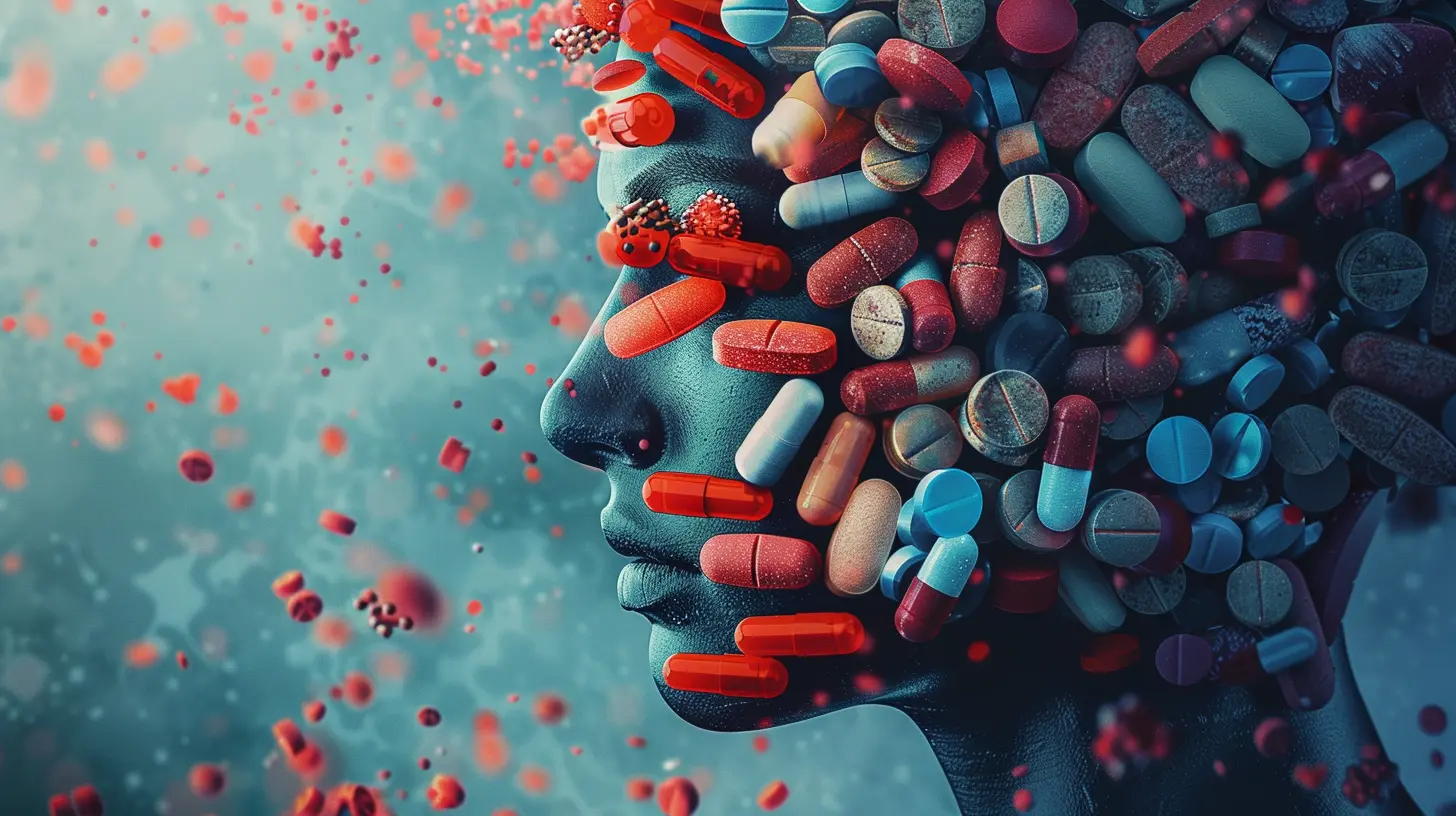The Role of Medication in Treating Bipolar Disorder
19 May 2025
Bipolar disorder is a complex mental health condition, but if you're reading this, you probably already know that. The mood swings, the highs of mania, and the lows of depression can make life feel like a never-ending rollercoaster. It’s exhausting. And, if you or someone you love has been diagnosed with bipolar disorder, you know how challenging it can be to manage the symptoms.
But here’s the thing: it’s not all hopeless. One of the most effective ways to manage bipolar disorder is through medication. While medications aren’t a magic cure (if only!), they play a huge role in stabilizing mood and allowing individuals to live more balanced lives.
In this article, we’ll dive into the role of medication in treating bipolar disorder. We’ll explore the different types of medications commonly prescribed, how they work, and what you can expect when using them. Ready? Let’s get into it.

What is Bipolar Disorder?
Before we get into the specifics of medication, let’s quickly touch on what bipolar disorder actually is. In simple terms, bipolar disorder is a mental health condition characterized by extreme mood swings. These mood swings include periods of mania (high energy, elevated mood, or irritability) and episodes of depression (low energy, feelings of sadness, or hopelessness).There are two main types of bipolar disorder:
- Bipolar I: Defined by manic episodes that last at least seven days, often severe enough to require hospitalization.
- Bipolar II: Characterized by less severe manic episodes (called hypomania) but with more frequent and longer-lasting depressive episodes.
While therapy and lifestyle changes are crucial in managing the disorder, medication is often essential to keeping those mood swings in check.

Why is Medication Important for Bipolar Disorder?
Let’s be real – living with bipolar disorder is tough. The unpredictability of mood swings can disrupt every aspect of life, from relationships to work. Medication can act as a stabilizer, helping to reduce the frequency and intensity of these mood swings. It’s like installing guardrails on that rollercoaster, so the highs and lows aren’t quite as extreme.1. Stabilizing Mood Swings
At its core, medication helps to even out the dramatic mood swings that come with bipolar disorder. Instead of bouncing from high to low, medication can help keep your emotional state more stable.For some people, this means fewer manic episodes. For others, it means less time spent in the depths of depression. Either way, medication helps to create a more balanced emotional baseline.
2. Preventing Relapse
One of the biggest benefits of medication is that it helps prevent relapses. Relapse refers to the recurrence of a manic or depressive episode after a period of stability. Finding the right medication can lower the chances of these episodes returning, allowing individuals to maintain a more consistent mood over time.3. Improving Quality of Life
When bipolar disorder is left untreated, it can wreak havoc on every part of your life. Relationships can suffer, work can become impossible, and self-care often falls by the wayside. Medication helps to bring back a sense of normalcy, making it easier to manage day-to-day responsibilities.
Types of Medications Used to Treat Bipolar Disorder
There’s no one-size-fits-all approach when it comes to medication for bipolar disorder. Different medications work for different people, and it may take some trial and error to find the right combination. Here are the main types of medications commonly prescribed to treat bipolar disorder:1. Mood Stabilizers
When you think of bipolar disorder medication, mood stabilizers are probably what first comes to mind. These medications are the cornerstone of treatment for many individuals. They help to regulate mood and reduce the extreme highs and lows associated with the disorder.The most well-known mood stabilizer is lithium. Lithium has been used to treat bipolar disorder for decades and is one of the most effective medications for preventing mania and depressive episodes.
Other mood stabilizers include anticonvulsants like valproate (Depakote) and lamotrigine (Lamictal). While originally developed to treat seizures, these medications also help to stabilize mood in people with bipolar disorder.
2. Antipsychotics
In some cases, mood stabilizers alone aren’t enough to control bipolar symptoms, especially during manic episodes. That’s where antipsychotics come in. They’re often prescribed to help manage severe mania, psychosis, or even treatment-resistant depression.Common antipsychotics used in bipolar disorder include olanzapine (Zyprexa), quetiapine (Seroquel), risperidone (Risperdal), and aripiprazole (Abilify).
Antipsychotics work by affecting neurotransmitters in the brain, particularly dopamine, and serotonin, which helps to reduce manic symptoms and, in some cases, alleviate depression.
3. Antidepressants
Now, you might be thinking, “If bipolar disorder involves depression, wouldn’t antidepressants be a good option?” Well, yes and no. Antidepressants can be effective in treating the depressive episodes of bipolar disorder, but they have to be used very carefully.Why? Because antidepressants can sometimes trigger manic episodes if not paired with a mood stabilizer. That’s why they’re usually prescribed alongside other medications, such as mood stabilizers or antipsychotics, to prevent the risk of mania.
Some commonly prescribed antidepressants for bipolar disorder include SSRIs like fluoxetine (Prozac) and sertraline (Zoloft), as well as SNRIs like venlafaxine (Effexor).
4. Benzodiazepines
Benzodiazepines are not typically used as a long-term treatment for bipolar disorder, but they can be helpful in the short term. These medications are often prescribed for people experiencing acute anxiety, agitation, or insomnia during manic or depressive episodes.Lorazepam (Ativan) and clonazepam (Klonopin) are two examples of benzodiazepines that may be used for short-term relief.
However, it’s important to note that benzodiazepines can be habit-forming, so doctors generally recommend using them only temporarily and under close supervision.

Finding the Right Medication: A Personal Journey
Here’s the thing: finding the right medication for bipolar disorder can take time. It’s not uncommon to try several different medications, or even combinations of medications, before finding the one that works best for you.It’s a bit like finding the right pair of shoes. You wouldn’t buy the first pair you try on, right? You need to walk around in them a bit, see if they fit, and decide if they’re comfortable. It’s the same with medication. Sometimes you’ll need to tweak the dosage or try a different option altogether to find what works best for your unique brain chemistry.
1. Trial and Error
It’s not unusual to feel discouraged during the process of finding the right medication. You might experience side effects, or the medication may not be as effective as you’d hoped. But don’t give up. It’s all part of the process.Your doctor will work with you to adjust your treatment plan as needed, and eventually, you’ll find a combination that helps to stabilize your mood without too many unwanted side effects.
2. Patience is Key
One thing that’s important to remember is that medications for bipolar disorder usually take time to work. You might not notice an immediate difference, and that’s okay. Stick with it, and give the medication time to take effect.In the meantime, it can be helpful to keep a mood journal. Track your symptoms, mood changes, and any side effects you’re experiencing. This will give your doctor valuable information to help guide your treatment plan.
Are There Side Effects?
Let’s be honest: all medications come with potential side effects, and bipolar disorder medications are no different. You might experience side effects like weight gain, drowsiness, or changes in appetite. Some people also report feeling emotionally "flat" or disconnected.But here’s the good news: not everyone experiences side effects, and for many people, the benefits of medication far outweigh the downsides. Plus, if you do experience side effects, your doctor can work with you to adjust the dosage or switch to a different medication that might be more tolerable.
Medication is Just One Piece of the Puzzle
While medication is a critical component of managing bipolar disorder, it’s not the only tool in the toolbox. In fact, most experts agree that a combination of medication and therapy is the most effective way to manage the disorder.Therapy, such as cognitive behavioral therapy (CBT) or interpersonal therapy, can help you develop coping strategies for dealing with the ups and downs of bipolar disorder. Lifestyle changes – like regular exercise, a consistent sleep schedule, and a healthy diet – can also make a big difference.
It’s all about finding the right balance for you, and medication is just one part of that equation.
Final Thoughts: Is Medication Right for You?
If you’ve been diagnosed with bipolar disorder, medication can be a game-changer. It can help stabilize your mood, prevent relapses, and improve your overall quality of life. But it’s important to remember that everyone’s journey with bipolar disorder is unique, and what works for one person may not work for another.The key is to work closely with your doctor, be patient, and stay open to trying different options until you find the right fit. With the right medication and support, it’s absolutely possible to live a fulfilling, balanced life with bipolar disorder.
So, if you’re sitting on the fence about whether to start medication, think of it like this: it’s just another tool in your toolkit. It’s not a magic bullet, but it can make the journey a little smoother.
all images in this post were generated using AI tools
Category:
Bipolar DisorderAuthor:

Jenna Richardson
Discussion
rate this article
3 comments
Alexander McElveen
Ah, medication for bipolar disorder—because who wouldn’t want to juggle mood swings with a side of pharmacy roulette? Nothing says “stability” like a daily game of pill poker!
May 31, 2025 at 4:23 AM

Jenna Richardson
While managing bipolar disorder can indeed feel like a challenge, medication plays a crucial role in stabilizing mood swings and improving overall quality of life for many individuals.
Roxie Reynolds
Medication is a lifeline for many battling bipolar disorder. It’s not a crutch; it’s a vital tool that can stabilize moods and enhance quality of life. Let’s stop demonizing medication and instead advocate for informed choices—because every individual deserves the chance to thrive, unapologetically.
May 22, 2025 at 3:13 AM

Jenna Richardson
Thank you for highlighting the importance of medication in managing bipolar disorder. It's essential to view it as a valuable tool for stability and well-being, supporting informed choices for every individual.
Drake Frye
Essential for managing bipolar symptoms.
May 19, 2025 at 3:27 AM

Jenna Richardson
Thank you for your comment! Medication plays a crucial role in stabilizing mood and managing bipolar symptoms effectively.



